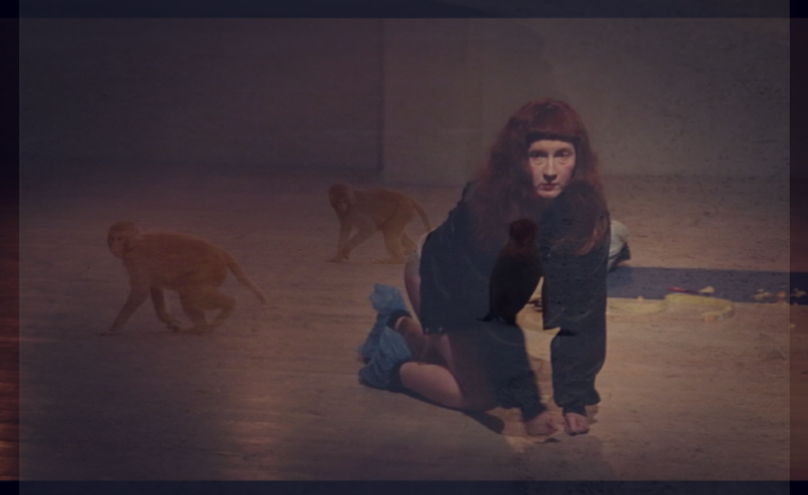999: Alchemist Trauma Centre/Power Centre - Alexa Wilson
1 March 2019, Academy Cinemas, Auckland
Auckland Fringe Festival
Reviewed by Jess Holly Bates

Having single-handedly curated and executed New Zealand’s first platform for experimental dance only two weeks prior, it is a treat to see Alexa Wilson under lights. Experimental Dance Week Aotearoa (EDWA) made space for a plethora of emerging and established practitioners to test work over seven days. Although we are now deep in Auckland Fringe, this one night only performance experience: 999 Alchemist Trauma Centre/Power Centre feels in some way like the EDWA sign-off, in signature ‘unfuck the world’ Alexa style.
Her opening trigger warnings are so accurate we can’t help but laugh. “There will be layers” she explains. “You may not understand.” To me, this is the perfect articulation of the existential elephant each of us lugs into the theatre with us – especially when charged with watching a ‘feminist meditation, a poetic activist activation.’ Our elephant whispers sweetly: are we allowed to be here? Will we get it? Do we belong? Am I the right kind of audience for this?
Alexa’s answer, of course, is that the work is a porous experiment, there are no insides and there are no outsides. 999 demands a collective responsibility from everyone in the room – insisting on exactly the kind of spontaneous co-creation that our nation’s audiences struggle to muster. The style of Alexa’s invitation refuses to hold your hand. She is not interested in your discomfort. Making work is uncomfortable. She will not create the perfect safety for your participation, if you are to act, you must do so without a net.
With each audience member cocooned in their individualized plush blue upholstery of the academy cinema seats, this kind of collective consciousness feels especially challenging. This architecture is designed to isolate us, to allow complete individual immersion into a film experience. Without that, we feel miles from each other and very disconnected from the stage. Still the invitations keep coming. She works hard. Who knows the recipe for heartbreak? she asks. We are good at that one. Who would like to use this pair of old underwear to wipe up the spit on my body as an act of humility? The room goes still, no-one gets up. She drops the underwear and moves on.
Running under every one of these invitations is a question of class-based change – who will act in the face of it? Alexa is clear that we all participate in gentrification – and I am fascinated by how this knowledge informs her aesthetic. Most palpable to this particular audience are the recent shifts on K Road. It is easy to see how a particular aesthetic of neatness has swallowed up the formerly willfully ugly, incomplete and frayed world order of St Kevins Arcade as we knew it. As I watch 999, I fight these gentrifying aesthetic privileges in my own body. The stage is messy and I wish she’d just pick things up. Alexa trips over her own belongings, she changes outfit constantly – refusing to be stable, refusing for the stage-space to be interpretable, refusing to make order of the chaos.
Overwhelmingly, in a show peppered with indecisions, uncertainty and poorly articulated audience dreams, I am left with a sense that 999 resists consumption on every level. I read a kind of battle fatigue in the body of the performer – tonally similar to endurance work, and Alexa’s relentless commitment to probing self-awareness into us is no small ask. Some of her provocations continue to rattle around in my brain four days later. What feels radical for your demographic? After my visceral response to the stage space, I’m guessing the politics of mess might be my cross to bear. At one point, the connection cuts out in a filmed Skype with her ex-partner, and after some space, Alexa asks: shall I just ask another question? My answer is yes, please. Every time.
